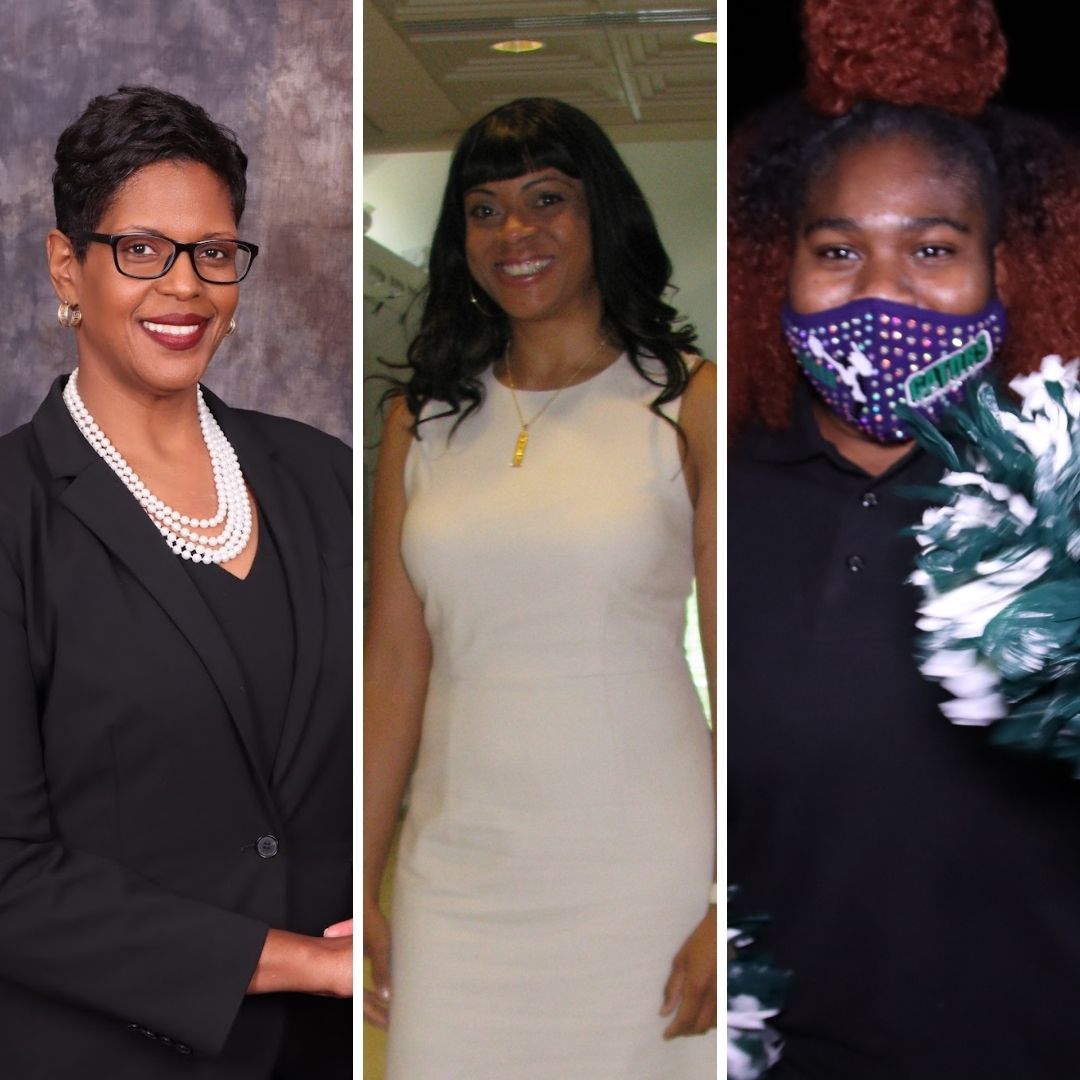Black Women Hold Three Key Leadership Posts at College
 Thomas Nelson psychology professor Shanda Jenkins, in discussing Black women in leadership positions in higher education, referenced an article by the Chronicle of Higher Education that asked who was missing.
Thomas Nelson psychology professor Shanda Jenkins, in discussing Black women in leadership positions in higher education, referenced an article by the Chronicle of Higher Education that asked who was missing.
"We're missing," she said of Black women.
A recent study of U.S. colleges by WomensPowerGap.org revealed just 5% of the 130 responding colleges have a Black woman president.
"It's crazy," she said, noting that study also showed women of all races make up 55% of those who have earned a Ph.D., but women of color hold only 19% of those degrees.
Keisha Samuels, the program head and an assistant professor in Human Services at the College, is doing her dissertation on the struggles African American women face moving into leadership positions at Virginia's community colleges.
"Less than 1% of all individuals who have their doctoral degrees or advance degrees in community colleges are women," she said. "Even less women are African American."
She also noted that in the past five years, the VCCS has hired more than 1,000 faculty members; less than 10 percent were people of color.
Because of those reasons and more, Jenkins, Samuels and others said it's significant Thomas Nelson, for the first time in the history of the College, has a Black woman president (Dr. Towuanna Porter Brannon), Faculty Senate president (Jenkins), and Student Government Association president (Z. Cherry).
"Why this speaks volumes for our college is because currently we are living in a place where diversity, equity and inclusion is a priority, not just for the country, but it's also for the VCCS, to the point where the VCCS has changed or amended their strategic plan to include diversity, equity and inclusion in all of the work that we do," Samuels said.
Jenkins takes it a step further. It shows the College, which celebrated Black History Month in February with a series of speakers and events and is preparing to do the same for Women's History Month in March, is backing up policies with actions.
"I think it says we are trying to move forward in a lot of our equity, diversity and inclusion initiatives, and that we are really putting some backing behind the words," she said. "It's not just we're having conversations about it. It's not just that we have committees about it, but we're actually putting it to work in our leadership."
It's also coming at a time when the College is becoming Virginia Peninsula Community College in response to the appropriateness of names at institutions in the VCCS.
"I do think it is significant with our name change because … not everyone was pleased with the name change, but through all of the efforts that we made to get community input and support, it was overwhelming as to what our community wanted," Samuels said. "I think it is very timely that this is occurring during this time."
Marian Clifton, the vice president of the Faculty Senate and a member of the Social Justice and Societal Change committee at Thomas Nelson, agreed.
"I think it is significant because, first of all, the whole change process that the college is going through as the result of the VCCS directive to take a look at the naming of the colleges across the state and why that process was necessary," she said.
The other piece is she and other African American faculty and administrators said it's important for students to have role models and mentors that reflect the college community as a whole.
While Jenkins is thrilled there are three women of color in those key leadership positions, it has more meaning because of how they got there.
"We were picked," she said. "I was picked. I didn't lobby to be faculty senate president. It wasn't even on my radar until I had colleagues reach out to me."
She also noted the three were chosen by the College community. It wasn't intentional, as if there were a directive saying the College needed Black women in each role.
"It was these are the people who are best-suited for the positions," she said. "The fact they saw three African American women being best-suited for leadership positions at this point in our college history is remarkable because it says something about where we're going."
Said Clifton: "I do think that this says that Thomas Nelson embraces diversity; that Thomas Nelson supports leadership; recognizes and honors leadership of African American women who are at the helm right now, in these three capacities."
Diversity helps everyone, said Samuels.
"We all benefit when we're not excluding," she said. "I think it speaks volumes to where we are just in our culture right now and where we're going."
She added it's encouraging see the glass ceiling has been broken, and it opens the future to all sorts of possibilities.
"The ceiling is becoming the floor," she said. "This is a big deal because of all of the barriers that have been encountered by women, and particularly women of color in academia."
